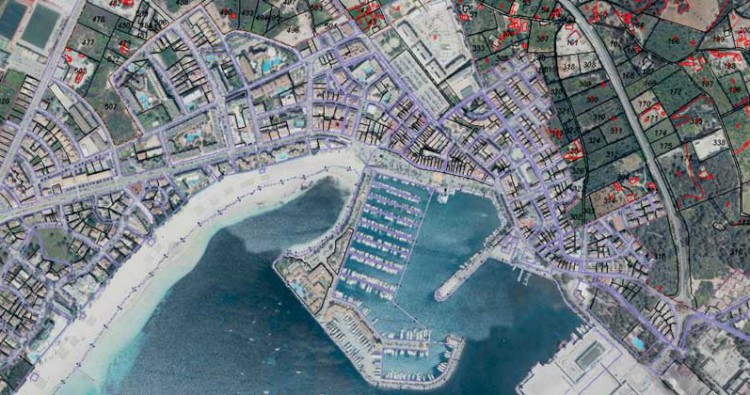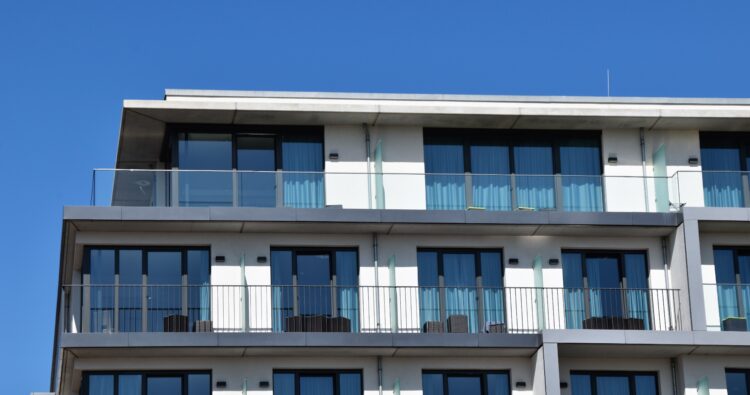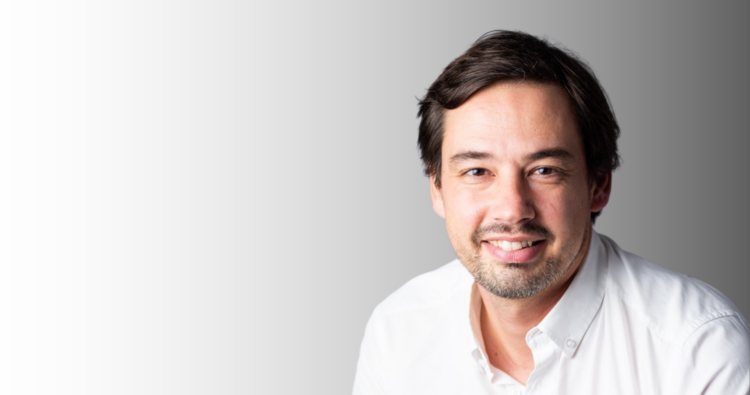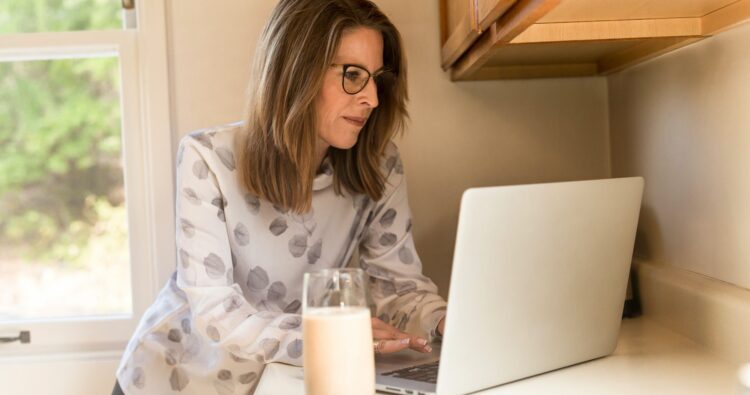Italian by roots and Portuguese by affection, Massimo Forte needs no introduction. Real Estate Influencer is in his LinkedIn biography and is a reflection of the path he has been following for almost 30 years in the property market. In this intimate interview he told us about his work, real estate in the post-pandemic and what he wants for the future.
When talking about Massimo Forte, there is a maxim that is always said: this business is from people to people. How do you come to this way of working and relate this business to all the communication practices you have developed?
I have been in the field for 28 years. That’s a long time. When I first got into mediation, I had a sense that the business was understanding real estate, architectural and engineering projects.
So, much of my initial training investment was in those areas, very focused on the technical side. Only years later I realized that there were colleagues of mine who didn’t have the same technical knowledge, but were much more successful than me. Something couldn’t be right. I realized that real estate was essentially dealing with people.
That conviction developed over the years, in every company I went through. That phrase comes up somewhere in a convention, unconsciously and spontaneously. Later, in 2013, when I made my brand, it was with some naturalness that it emerged as a slogan. Right now, it’s so strong in my community, they recognize me for it.
How do you think the management of the real estate business has been? Is it still highly emotional or is the rational weighing more and more?
Obviously the purchase is highly emotional. There is an unconscious component, but there is also a rational component, since there has to be a financial amount to purchase the properties.
By the way, much has been said about ethical issues. The real estate agent, when influencing or advising in a transaction, has to check well the ethical issue so that the person doesn’t buy something that he/she won’t be able to pay for, since it is difficult, time consuming and bureaucratic the process of “going back”. For example, buying a pair of shoes for $200 is recoverable in a couple of months. It’s not the same as buying a house, so you can’t just get caught up in the emotional issue.
Is this role of ethics more present today than it was 28 years ago?
It is a good question. Unfortunately, ethically speaking, I don’t think there has been much evolution. At a technological level, yes, passing through marketing and branding.
Ethically speaking, I don’t see any extraordinary evolution in real estate agents. Maybe because, in the last few years, a lot of people have entered without training or without continuity of training. Giving training is not only about transmitting knowledge: it’s about transmitting education and values.
Sometimes you see some trainers who transmit knowledge, but everything else is not transmitted. And so, the ethical issue becomes stagnant.
In your journey, how do you connect the very technical initial training, the constantly evolving practice, and Neuro Linguistic Programming (NLP) in between?
NLP is nothing more than a communication tool. Agents should not consider it as a “fantastic” thing. It is just a tool that makes us know ourselves, to then communicate with the other.
If I am a good communicator, I am a good salesman and I am a good negotiator. To be a good communicator, it is essential to know how to listen and transmit my ideas to the other, through language (body, para-verbal or verbal).
NLP helps in what is the awareness of communication and how I can do it in different contexts. Like other doctrine, it has an ethical and less ethical part. Here I also lean more towards doing good for the other, using the non-manipulative techniques of persuasion.
Should communication be the same, even if we are talking about different markets, such as Portugal and Italy?
Portugal, Italy and Spain are not so different. The culture and language are different, but many things are similar. They are similar markets because the people are similar, they have certain characteristics that link them and even affinities in the language itself, Catholic customs.
On a technical level there are clear differences. Italy, for example, has a very strict real estate mediation law, based on the accreditation and supervision of agents, while Portugal has a more permissive law and Spain, in this field, currently has no law.
Do you provide training for all 3 countries? What is it like to manage an agenda with such geographical and cultural diversity and what are the main differences?
I work constantly with all 3 countries. Today I have already sent emails to Italy and Spain. One week the training is all Portuguese, the next I go to Italy and then to Madrid.The way of learning is the same.
In the need for learning, the Spanish market is below in these competencies and needs more training. Portugal has a very high level of mediation and Italy follows. In Spain it is necessary to invest because it is quite different.
Then there are the culture and habits: in Madrid training is not given before 10am, lunch is at 2pm and dinner is later. In Northern Italy, some agencies open at 8.30am and have lunch at 12.30pm. There has to be a certain adaptation. The Spanish are more expansive, the Portuguese are more shy and closed and the Italians are a mixture of the two. But I’d say that, across the board, they’re quite similar.
There is a myth that Portugal is an ageing country and the Portuguese people do not care about technology, preferring to work in a more traditional way. In your opinion, how do we position ourselves technologically?
I see the Portuguese as being very attached to technology. From my perception, I see the Spanish and Italians sometimes lagging behind. Even when it comes to older people, whatever is explained to them, they use. And they like it.
Technology has to be useful. It annoys me when a technology is too complicated. It’s really essential to be user-friendly. The person wants to solve a problem. If the technology is not useful, then it sucks.
Is there a before and after CASAFARI in the market?
There is, clearly a before and after. I remember in 2017 when Nils and Mila came to me, we didn’t know each other and it was in our first meeting that they explained their purpose and values to me. When a company is created to solve a problem and not thinking about the money it will generate, and if the purpose is well aligned, it is usually a company that thrives.
At this moment, it comes to solve even more problems than the first one, which was the basis of everything. By nature, CASAFARI began linked to property search (metasearch), a term that was almost unnoticeable in Portugal. Nowadays, when I say “CASAFARI” everyone already knows what it is.
Once again, Portugal is very welcoming to those who come from abroad, so it has that advantage. Also in the case of Spain, the agencies I work with have welcomed this new way of working very well.
How was your first contact with the platform? How do you see it improving the daily life of a real estate professional?
It’s a huge time saver. Just recently I had to do some consultancy work. Before CASAFARI, it probably took a day or two for what was done in minutes. Being able to see with a few clicks how the market is in a certain area, in the comfort of my home, is a fantastic step.
About the daily use, I think that step has already been overcome. I have that feedback from the people I follow. Nowadays, everybody says they have done CMA with CASAFARI and use it every day.
Since March 2020, the property market has had to adapt to the pandemic. What have you seen changing? Are you asked about this a lot?
I am very questioned and I have many conversations about these topics, analyzing numbers, with my colleague Gonçalo Nascimento Rodrigues.
In the beginning, there was the panic phase, evident with the abrupt drop in transactions. Then, with the help of technology – which was very important – there was a return to transacting and doing everything digitally now. The property market is slow and bureaucratic, but it ended up being very resilient.
Of course, by maintaining the stock, the market maintained its prices, and Banking, maintaining liquidity and a low interest rate, maintained demand. Which made the market more resilient, compared to other activities. This does not mean that there will not be readjustments in the future.
The pandemic turned out to be a scare and adaptation was obvious: valuations started to be made from outside the building, from documentation, blueprints and photographs. Virtual visits began to be highly useful. Many companies made several sales through virtual visits. Platforms like Zoom and Skype made all the difference. Technology becomes useful when it is needed.
Now, the mix between face-to-face and online, the so-called “omnichannel”, is the key.
Between books, courses and masterclasses, of the projects you have, what news are coming out?
The pre-sale of (Raising for Sale) “Angariar para Vender”, in its 9th edition, debuted in October. My brand has a big mission, to become more autonomous, providing content, but without having to be present.
In the pipeline is the launch of the new website, with a major focus on the REAL project (Real Estate Advanced Learning) , with a focus on new content and intensive masterclasses.
The (Power of Prospecting) “Poder da Prospeção” audiobook is on the list of upcoming projects, as well as an upgrade to the website to make it even more useful, fast and intuitive. The fifth book is also in the pipeline, already entitled “Gerir para Líderar” (Managing to Lead), aimed at real estate brokers.
It’s content that walks on its own. I don’t need to be there. So I’m still training and doing consultancy, but with more time for myself.
And have you managed to have this time?
Slowly, yes. There are peaks of hard work and there are times when I can have a bit more time. For example, at this point I’m planning 2022. One of the things I wanted to count on for this year, and that I’ve been able to do, was to not work at the weekend and have a full day off. As well as time for holidays and to travel, as well as work.
Do you visualise a lot of what you are going to do when you plan for that long term?
Yes, a lot. I imagine and try to feel what is going to happen. Even meetings, strategies. I like and am a planning person. Not planning is critical for something not to have happened.
We are all animals of habit. One of mine: I may have taught a course hundreds of times, like Angariar para Vender, which is 7 years old, but every time I teach it, I review the whole course before teaching it. It’s funny that when I review it, slide by slide, there are always details to change.
Preparation is everything. In life, in business, in sport or in competition. I had a funny thought today, because I’m working a lot and every time I go to a training session online or in person, every time I go into a training session, it feels like I’m in an Oral (from College). It’s like every day I have to give a presentation and an ability to answer all kinds of questions. So it’s a constant game that requires a lot of preparation.
In 28 years in the property market, what have you not told in an interview?
There are so many! I remember a good story, when I did a fund-raising, with a colleague, in an old house, in the centre of Lisbon. This is a good example of how technical we are in the way we talk.
At a certain moment, we asked for the house documents and asked if the lady had the plans. And she said “yes, yes, come with me” and took us to the balcony of the house, where she points to a series of houseplants.
Of course, we just stared at each other thinking this wasn’t happening. But it’s an example of how language should be above all simplified and non-technical, because the other person doesn’t understand and doesn’t have to understand, it’s us who have to adapt.
What is a day in the life of the real estate influencer Massimo Forte?
Some days are very complex. I have the perfect days, when I walk my children to school. I can have a nice meeting and then have lunch with my wife somewhere nice, in peace and quiet. I go for a run, read, go shopping and pick up my kids. It’s a very quiet day.
On a normal day I wake up very early, around 6 a.m., I’m already working at 8.30 a.m. and so I stay late, which can go up to ten o’clock at night.






